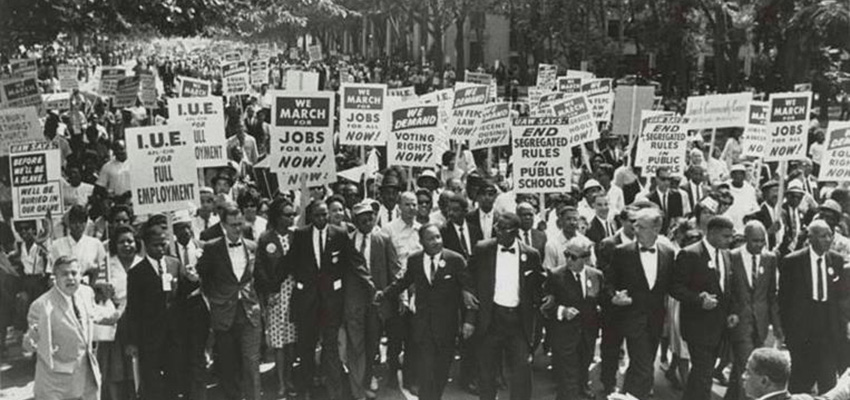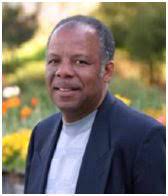Black History
Lee Cherry, Engineer and Advocate for African Americans in Science, Dies at 76
He loved to travel, read, promote science, technology and the environment, highlighting the accomplishments of African Americans in this country and throughout the African Diaspora.


Lee Cherry
Oakland native Lee Cherry, a dedicated scientist, engineer and advocate for science education among African American youth and an active leader in the Black Freedom Movement in his youth, passed away on July 24, 2021. He was 76.
As a young teenager, Cherry was greatly influenced and involved in the Black Freedom movement. He became involved with his older brothers in the Afro-American Association, which was influential in Oakland during the early 1960s before the start of the Black Panther Party when the struggle for racial justice was evolving from the Civil Rights Movement to the rise of Black Power.
The Afro-American Association brought leaders like Malcolm X and Muhammad Ali to the East Bay for public discussions of philosophy, religion, economics, politics and other issues. Members and associates of this group – Ron Dellums, Judge Thelton Henderson, and Cedric Robinson – became some of the most influential cultural and political Black leaders of their generation.
Cherry organized Dignity Institute of Technology in 1967, which was later renamed the African Scientific Institute (ASI) in 1975. The ASI, which is on the web at https://sci-tech.squarespace.com/, is a network of scientists and technologists who participate in their communities. The organization is particularly interested in addressing the problems of developing countries, with special emphasis on capacity building, offering a forum for the exchange of technical information and expertise.
Historically, ASI concerned itself primarily with mentorship programs for minorities entering the field of science, technology, engineering, and mathematics (STEM). Over the years, the organization expanded its objectives to become project-development oriented.
The fourth of 11 children born to Knorvel Sr. and Lucy Cherry, Lee Cherry attended Clausen Elementary School, Oakland Middle School (now Oakland International HS) and graduated from Oakland Technical High School. He attended UC Berkeley and graduated from San Jose State University. Working as an electrical and environmental engineer, he had a professional career that spanned IBM, Lockheed Aerospace, PG&E, and the Department of Defense. He managed electrical defense contracts for the U.S. Navy.
Cherry met and married Lauran Michelle Waters of Wash., DC. The couple has two daughters, Dr. Aminah Cherry and Dr. Jamilah Cherry-Woodard.
He loved to travel, read, promote science, technology and the environment, highlighting the accomplishments of African Americans in this country and throughout the African Diaspora.
He was a dedicated researcher, which enabled him to converse with anyone on multiple subjects. If he didn’t know the subject matter, he would thoroughly research the topic so he could engage. He had an insatiable love for learning.
Lee Cherry leaves to mourn his passing his wife, Lauran Michelle; daughters Dr. Aminah Cherry, Dr. Jamilah Cherry (Terrell); brothers and sisters Loye, James (Cynthia), Bernice, Betty, LaVance and Louis; mother-in-law Faye Waters; uncle Al; grandchild Amari Woodard; nieces Chaleda/Corey, Aleiya, Baniah and many more nieces, nephews, cousins, friends and colleagues.
The Oakland Post’s coverage of local news in Alameda County is supported by the Ethnic Media Sustainability Initiative, a program created by California Black Media and Ethnic Media Services to support community newspapers across California.
Activism
Oakland Post: Week of April 24 – 30, 2024
The printed Weekly Edition of the Oakland Post: Week of April 24 – 30, 2024

To enlarge your view of this issue, use the slider, magnifying glass icon or full page icon in the lower right corner of the browser window. ![]()
Activism
Oakland Post: Week of April 17 – 23, 2024
The printed Weekly Edition of the Oakland Post: Week of April 17 – 23, 2024

To enlarge your view of this issue, use the slider, magnifying glass icon or full page icon in the lower right corner of the browser window. ![]()
Black History
Matthew Henson: Explorer Extraordinaire
Matthew Henson, a trailblazing explorer who overcame countless obstacles to leave an incredible mark on history. Born on August 8, 1866, in Charles County, Maryland, his journey is a testament to the power of determination and the spirit of adventure.

By Tamara Shiloh
Matthew Henson, a trailblazing explorer who overcame countless obstacles to leave an incredible mark on history. Born on August 8, 1866, in Charles County, Maryland, his journey is a testament to the power of determination and the spirit of adventure.
Henson’s life began amidst the backdrop of post-Civil War America, where opportunities for African Americans were scarce. From a young age, he possessed an insatiable curiosity about the world beyond his small town. At the age of 12, he embarked on a journey that would change the course of his life forever when he joined a merchant ship as a cabin boy.
His most famous expedition was his journey to the Arctic with renowned explorer Robert E. Peary. In 1887, Henson joined Peary’s crew as a seaman and quickly proved himself to be invaluable with his skills as a navigator and craftsman. Over the course of several expeditions, Matthew endured extreme cold, treacherous terrain, and grueling conditions as he and Peary sought to reach the elusive North Pole.
In 1908–09, Peary set out on his eighth attempt to reach the North Pole. It was a big expedition, with Peary planning to leave supplies along the way. When he and Henson boarded their ship, the Roosevelt, leaving Greenland on August 18, 1909, they were joined by a large group. This included 22 Inuit men, 17 Inuit women, 10 children, 246 dogs, 70 tons of whale meat, blubber from 50 walruses, hunting gear, and tons of coal.
In February, Henson and Peary left their anchored ship at Ellesmere Island’s Cape Sheridan, along with the Inuit men and 130 dogs. They worked together to set up a trail and supplies along the way to the Pole.
Peary picked Henson and four Inuit people to join him in the final push to the Pole. However, before they reached their destination, Peary couldn’t walk anymore and had to ride in a dog sled. He sent Henson ahead to scout the way. In a later interview with a newspaper, Henson recalled being in the lead and realizing they had gone too far. The group turned back, and Henson noticed his footprints helped guide them to their destination. At that location, Henson planted the American flag.
Henson’s legacy extends far beyond his expeditions to the Arctic. He shattered racial barriers in the world of exploration and inspired countless individuals, regardless of race, to dream big and pursue their passions. In 1937, he was finally recognized for his achievements when he was inducted into The Explorers Club, an organization dedicated to promoting scientific exploration and field research.
Matthew Henson died in the Bronx, New York, on March 9, 1955, at the age of 88.
-

 Activism4 weeks ago
Activism4 weeks agoOakland Post: Week of March 27 – April 2, 2024
-

 #NNPA BlackPress4 weeks ago
#NNPA BlackPress4 weeks agoBeloved Actor and Activist Louis Cameron Gossett Jr. Dies at 87
-

 Community1 week ago
Community1 week agoFinancial Assistance Bill for Descendants of Enslaved Persons to Help Them Purchase, Own, or Maintain a Home
-

 Activism3 weeks ago
Activism3 weeks agoOakland Post: Week of April 3 – 6, 2024
-

 Business1 week ago
Business1 week agoV.P. Kamala Harris: Americans With Criminal Records Will Soon Be Eligible for SBA Loans
-

 Activism2 weeks ago
Activism2 weeks agoOakland Post: Week of April 10 – 16, 2024
-

 Community1 week ago
Community1 week agoAG Bonta Says Oakland School Leaders Should Comply with State Laws to Avoid ‘Disparate Harm’ When Closing or Merging Schools
-

 Community6 days ago
Community6 days agoOakland WNBA Player to be Inducted Into Hall of Fame



















































